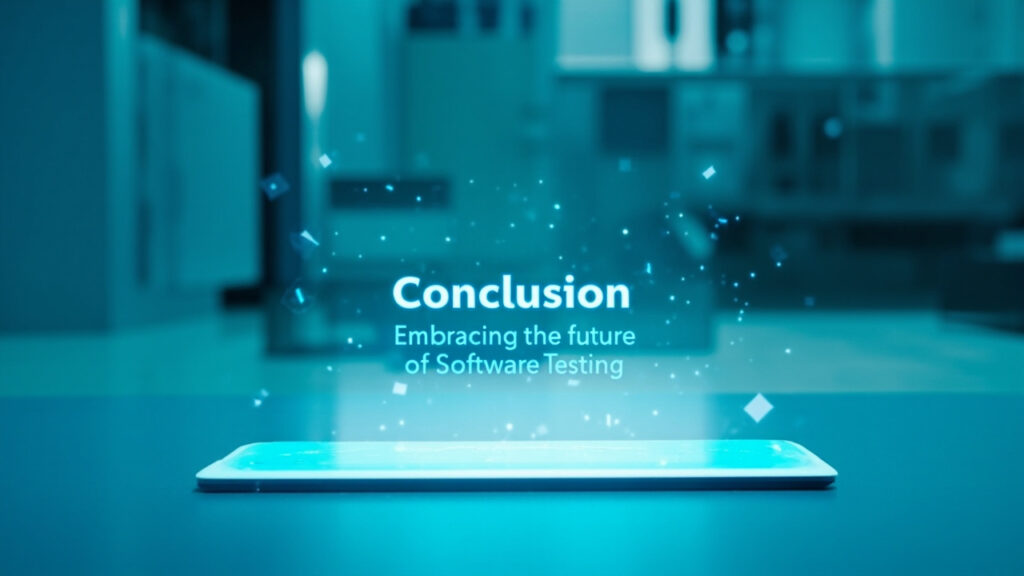In an era where software development cycles are quicker than ever, the traditional approaches to software testing lag behind, unable to catch up with the demands of modern software engineering. This gap not only affects the quality of software products but also impacts the overall business, leading to potential financial losses and reduced customer satisfaction. Traditional testing techniques, while reliable, are often too slow and inflexible for today’s dynamic market requirements.
As the complexity of software increases, so does the necessity for innovative testing methodologies that can adapt quickly and efficiently. This article delves deep into the world of hacking software testing—redefining traditional practices to meet contemporary needs, and introduces cutting-edge tools like GenQE that are setting new standards in the industry.
By the end of this post, you’ll gain comprehensive insights into revolutionary testing methods that can be applied to your projects, ensuring higher quality, faster delivery, and ultimately, greater customer satisfaction. Let’s explore how the landscape of software testing is evolving and how you can stay ahead in this fast-paced arena.
The Evolution of Software Testing

Software testing has undergone significant transformations over the decades. From manual testing to automation, and now to AI-driven approaches, each phase has aimed to address the growing complexities of software applications and the need for faster development cycles.
From Manual to Automation
The initial phase of software testing was predominantly manual. Testers wrote and executed test cases without much help from tools, a time-consuming process that was prone to errors. The advent of automation tools marked a significant improvement, speeding up this process and reducing human error, but it still required heavy manual effort in creating test scripts.
The Rise of Agile and DevOps
As development methodologies shifted towards Agile and DevOps, testing had to adapt to shorter cycles and continuous integration and delivery. This required a more dynamic approach to testing where automation became critical, but traditional tools were often not flexible enough to keep up with the changes in software features.
AI-Driven Testing
The latest evolution involves AI-driven testing platforms like GenQE, which further optimize the testing process by using artificial intelligence to generate and execute test cases. This not only speeds up the testing process but also enhances accuracy and reduces the maintenance burden on QA teams.
Understanding Hacking Software Testing

Hacking software testing involves innovative, often unconventional approaches to testing that improve efficiency and effectiveness. It’s about breaking away from traditional methodologies and exploring new tools and technologies to enhance the testing process.
Breaking the Conventional Mold
Traditional testing methods are often rigid. Hacking software testing means thinking outside the box—using scripts in a non-traditional manner, employing new tools, or rethinking the approach to test design and execution.
Integration of New Technologies
The integration of technologies like AI and machine learning has opened up new possibilities. Tools like GenQE utilize AI to automate complex testing processes, providing a level of coverage and insight that was previously unattainable.
Focus on Security and Performance
Hacking testing also means placing a stronger emphasis on aspects like security and performance from the outset, rather than as an afterthought. This proactive approach ensures that the software is robust and secure at every stage of development.
AI in Software Testing: A Game Changer

The introduction of AI in software testing has revolutionized how tests are created, executed, and analyzed. AI can predict potential issues, automate test case generation, and provide insights that were previously difficult to obtain.
AI-Driven Test Generation
AI-driven test generation, as seen with GenQE, automates the creation of test cases based on the analysis of software requirements and user behavior. This not only speeds up the testing process but also ensures comprehensive coverage and consistency in test case design.
Smart Test Execution
AI technologies enable smart test execution by prioritizing test cases based on risk and potential impact. This ensures that the most critical aspects of the software are tested first, optimizing the use of resources and time.
Enhanced Accuracy and Efficiency
AI-driven testing minimizes human errors and increases the precision of test results. This leads to a more reliable software product and a reduction in the time spent on debugging and retesting.
Real-World Applications and Case Studies
Adopting innovative testing strategies, including the use of AI-driven platforms like GenQE, has proven beneficial in various industries. From healthcare to finance, companies are experiencing tangible improvements in their development cycles and product quality.
Healthcare: Ensuring Compliance and Accuracy
In the healthcare industry, software applications must comply with stringent regulatory standards. AI-driven testing platforms help ensure that these applications meet all medical and legal requirements, reducing the risk of non-compliance and improving patient safety.
Finance: Security and Performance at the Forefront
Financial applications require high levels of security and performance. Using advanced testing methods, financial institutions can detect vulnerabilities early and optimize the performance of their applications, ensuring customer trust and compliance with financial regulations.
The Role of GenQE in Modern Testing Strategies

While discussing innovative testing tools, it’s essential to highlight the role of GenQE. This AI-powered platform enhances traditional testing methods by automating repetitive tasks, reducing manual effort, and providing deeper insights into software quality.
Seamless Integration with Existing Tools
GenQE integrates effortlessly with popular DevOps and CI/CD tools, allowing teams to incorporate advanced testing methods into their existing workflows without significant disruptions.
Scalability and Flexibility
The platform is designed to scale with the project’s needs, making it suitable for both small startups and large enterprises. Its flexibility allows it to adapt to various testing scenarios and requirements, making it a versatile tool in any developer’s arsenal.
Conclusion: Embracing the Future of Software Testing

As software continues to evolve, so must the methods we use to test and ensure its quality. Hacking software testing is not just about using new tools but rethinking our approach to testing to be more adaptive, efficient, and thorough. Tools like GenQE play a pivotal role in this transformation, offering capabilities that push the boundaries of what traditional testing can achieve.
Embracing these advancements will not only improve the quality of software products but also enhance the competitiveness of businesses in this digital age. As we look towards the future, the integration of AI and other innovative technologies in software testing seems not just preferable but essential.
For those interested in taking their software testing to the next level, exploring tools like GenQE might just be the step forward needed to make a significant impact in your projects and overall business success.
Discover More Innovative Solutions
Want to learn more about the tools and technologies discussed in this article? Explore how these innovations can be tailored to your specific needs and workflow requirements.
Our team of experts is available to answer your questions and provide personalized insights into how modern solutions like GenQE can address your specific challenges.